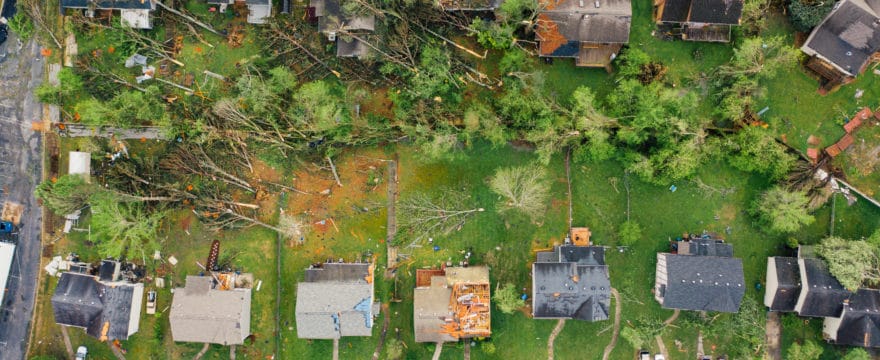There are so many different insurance products out there. As your neighborhood insurance agency, we have seen and heard just about any type of policy and coverage someone can purchase. One thing we get asked a lot about is loss of use coverage.
Since we have had such an active hurricane season, we thought that we can use examples from real life claims to explain how this type of coverage works. First and foremost, the first question we are going to answer is:
What is Loss of use coverage?
Loss of use coverage can help you if your house may become temporarily uninhabitable. This type of overage is often called additional living expenses (ALE) insurance. This type of insurance may also be called “Coverage D” under your homeowners policy. Loss of use coverage helps pay for additional costs that may occur when your home has experienced a natural disaster or other catastrophic event which can result in being repaired or rebuilt.
When it comes to Florida, Hurricane Season is another layer of exposure to all types of property insurance. The damage incurred could force you to live somewhere else temporarily. This would be a reason to have loss of use coverage. With proper coverage, you would be able to submit a claim that would help pay for your living arrangement as your house is being repaired.
What if I own a business?
Business loss of use coverage is like the homeowners example. The difference for businesses owners is the associated hard and soft costs to get the business back up and running fast. If you are a business owner, you should also be interested in builders risk coverage. This coverage may include loss of use and can come in handy during unexpected accidents or natural occurrences.
What are Hard costs?
If a business is experiencing a temporary closure due to a peril, hard costs are the costs of material and labor associated with the repair or rebuilding project. A few hard cost examples are:
- Construction labor and overhead
- Concrete materials (drywall or sheetrock)
- Grading and landscaping
- Doors and windows
- Plumbing and electrical
- Appliances and fixtures
What are Soft Costs?
These are costs incurred during construction that are not associated with labor or building materials. Soft costs can also be incurred from a delay in project completion. Some examples include
- Architects, engineers, and consultants’ fees
- Real estate and property tax assessments
- Interest on construction loans
- License and permit fees
- Insurance premiums
- Commissions or fees for lease re-negotiation
- Advertising and promotional expenses
- Legal and accounting fees
When facing a loss, the various types of expenses can add up. You could be paying double or triple for hard and soft costs if you are not insured properly. Be sure to get in touch with your agent when it comes to builder’s risk coverage or loss of use coverage for your home or business. Feel free to drop us a line at service@harrisinsurance.com or call us to speak to an agent at 850.244.2111

LEGAL DISCLAIMER
Views expressed here do not constitute legal advice. The information contained herein is for general guidance of matter only and not for the purpose of providing legal advice. Discussion of insurance policy language is descriptive only. Every policy has different policy language. Coverage afforded under any insurance policy issued is subject to individual policy terms and conditions. Please refer to your policy for the actual language.




